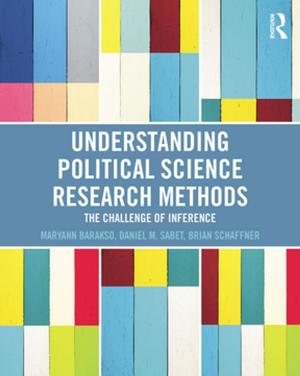Just Counterterrorism
Nonfiction, Religion & Spirituality, Philosophy, Ethics & Moral Philosophy, Social & Cultural Studies, Political Science| Author: | George Clifford | ISBN: | 9781370975754 |
| Publisher: | George Clifford | Publication: | December 21, 2016 |
| Imprint: | Smashwords Edition | Language: | English |
| Author: | George Clifford |
| ISBN: | 9781370975754 |
| Publisher: | George Clifford |
| Publication: | December 21, 2016 |
| Imprint: | Smashwords Edition |
| Language: | English |
Terror attacks and threats remain at frustratingly high levels even though governments continue to spend enormous sums on counterterrorism operations by the police, armed forces, and other agencies. The seemingly intractable problem of terrorism often leads people to believe that terrorism has no solution. The actual difficulty is that terrorism has no widely accepted definition. Government officials, scholars, the media, and the public all indiscriminately conflate the violence of non-state terror groups, insurgents, mass murderers, and harsh, non-democratic states into the single problem labeled terrorism.
Good problem solving begins by carefully defining the problem to be solved. Clifford defines terrorism as violence by non-state actors against innocent people for political purposes. This definition circumscribes a distinct problem for which solutions exist. He then analyzes what terrorists want, how terror groups end, and why law enforcement and warfighting models are both inadequate for shaping effective, ethical counterterrorism. These analyses explain the need for a new counterterrorism model that is comprehensive, effective, ethical, and flexible.
The proposed Just Counterterrorism Model's components—Justice for the Attacked, Justice for Terrorists, and Justice for Others—comprehensively address the problem of non-state terrorism. Each component includes a set of criteria for ethically assessing or shaping counterterrorism strategy and tactics regardless of a terror group's composition, ideology, or geography. John Rawls' concept of justice as fairness pervasively informs the Just Counterterrorism Model. Numerous examples, primarily from US and Israeli counterterrorism, mini case studies of extraordinary rendition and targeted killing, and a fuller case study of British counterterrorism in Northern Ireland, demonstrate the Model's potential for shaping effective counterterrorism.
Justice for the Attacked explores how communities when attacked or threatened by non-state terrorists can best respond to minimize terrorist gains in an attack's aftermath and to defend against future attacks. Justice for Terrorists outlines protocols for states to follow in apprehending terrorists where the rule of law prevails, interdicting them elsewhere, and adjudicating and punishing those arrested or captured. Justice for Others sketches the moves that states can implement to sever the vital connections between a terror group and the constituency or constituencies that enable the terror group to pose a viable threat.
Terror attacks and threats remain at frustratingly high levels even though governments continue to spend enormous sums on counterterrorism operations by the police, armed forces, and other agencies. The seemingly intractable problem of terrorism often leads people to believe that terrorism has no solution. The actual difficulty is that terrorism has no widely accepted definition. Government officials, scholars, the media, and the public all indiscriminately conflate the violence of non-state terror groups, insurgents, mass murderers, and harsh, non-democratic states into the single problem labeled terrorism.
Good problem solving begins by carefully defining the problem to be solved. Clifford defines terrorism as violence by non-state actors against innocent people for political purposes. This definition circumscribes a distinct problem for which solutions exist. He then analyzes what terrorists want, how terror groups end, and why law enforcement and warfighting models are both inadequate for shaping effective, ethical counterterrorism. These analyses explain the need for a new counterterrorism model that is comprehensive, effective, ethical, and flexible.
The proposed Just Counterterrorism Model's components—Justice for the Attacked, Justice for Terrorists, and Justice for Others—comprehensively address the problem of non-state terrorism. Each component includes a set of criteria for ethically assessing or shaping counterterrorism strategy and tactics regardless of a terror group's composition, ideology, or geography. John Rawls' concept of justice as fairness pervasively informs the Just Counterterrorism Model. Numerous examples, primarily from US and Israeli counterterrorism, mini case studies of extraordinary rendition and targeted killing, and a fuller case study of British counterterrorism in Northern Ireland, demonstrate the Model's potential for shaping effective counterterrorism.
Justice for the Attacked explores how communities when attacked or threatened by non-state terrorists can best respond to minimize terrorist gains in an attack's aftermath and to defend against future attacks. Justice for Terrorists outlines protocols for states to follow in apprehending terrorists where the rule of law prevails, interdicting them elsewhere, and adjudicating and punishing those arrested or captured. Justice for Others sketches the moves that states can implement to sever the vital connections between a terror group and the constituency or constituencies that enable the terror group to pose a viable threat.















